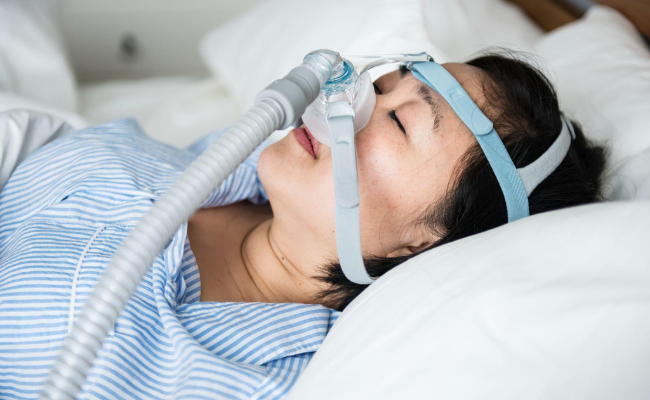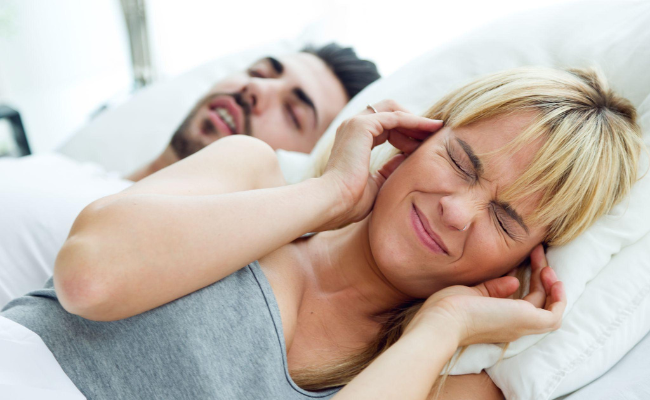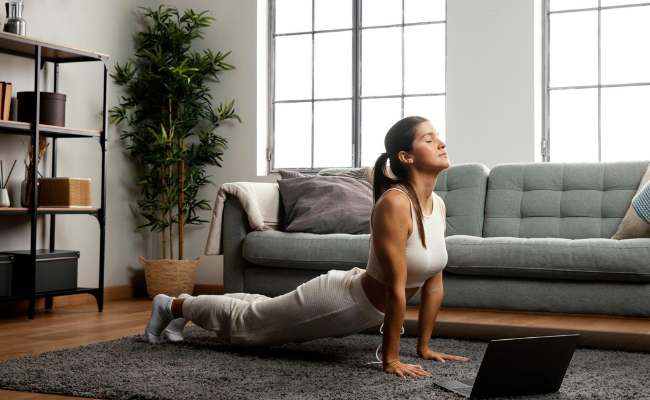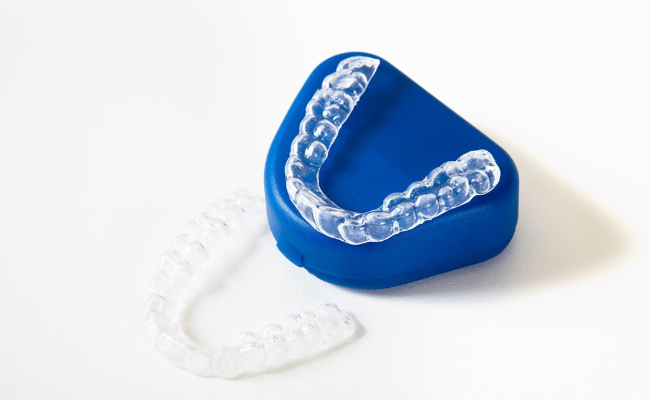Home Remedies for Sleep Apnea: Natural Ways to Manage Symptoms
Sleep apnea is a severe sleep disorder that affects millions worldwide. It’s characterized by shallow breathing, pauses in breathing, and loud snoring during sleep. It can cause daytime fatigue, headaches, and irritability.
Although medical treatments are available for sleep apnea, some prefer natural remedies first. There are numerous safe and effective ways to enhance sleep quality and reduce the impact of sleep apnea on your health and well-being, from lifestyle changes to natural supplements and therapies.
In this article, let’s look at the reasons and possible health hazards of sleep apnea and suggest some home remedies that can aid in relieving its symptoms. If you constantly feel exhausted and want to improve your sleep health, keep reading!
What Is Sleep Apnea?
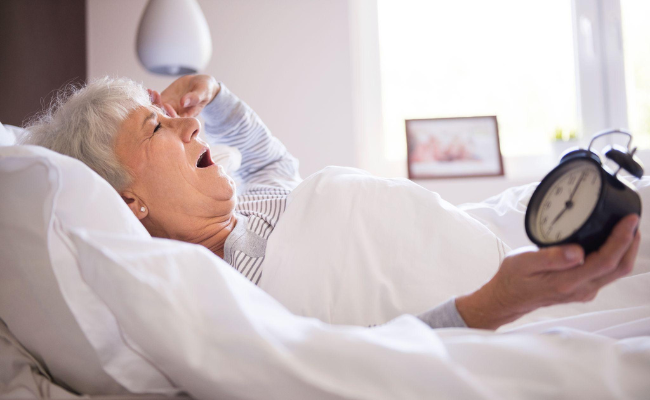
Sleep apnea is a sleep disorder that causes shallow breathing, pauses in breathing, and loud snoring during sleep. This occurs when the muscles at the back of the throat can’t maintain an open airway, resulting in insufficient oxygen supply to the body.
Various factors, including obesity, smoking, alcohol consumption, nasal congestion, and genetics, can cause sleep apnea.
Type of Sleep Apnea
Sleep apnea can be categorized into three main types: obstructive, central, and complex. Here’s how each type differs:
Obstructive Sleep Apnea (OSA): This type is the most common type of sleep apnea, accounting for around 84% of all cases. OSA happens when the muscles at the back of the throat cannot maintain an open airway. This leads to repeated interruptions in breathing during sleep.
Central Sleep Apnea (CSA): CSA happens when the brain cannot transmit proper instructions to the muscles in charge of regulating respiration. CSA is less common than OSA and is often associated with other medical conditions.
Complex Sleep Apnea Syndrome (CompSA): Also known as treatment-emergent central sleep apnea, this type combines OSA and CSA. This happens when a person with OSA is treated with continuous positive airway pressure (CPAP) device, but the treatment causes or worsens CSA symptoms.
Symptoms of Sleep Apnea
The symptoms of sleep apnea include:
- Loud snoring
- Pauses in breathing during sleep
- Gasping or choking during sleep
- Waking up with a dry mouth or sore throat
- Daytime fatigue
- Headaches
- Irritability
- Difficulty concentrating
- Mood swings
- High blood pressure
Although some of these symptoms may require medical intervention, natural remedies can help alleviate severe sleep apnea symptoms.
You may also like: Sleep Apnea Linked to Severe COVID
Natural Home Treatments for Sleep Apnea
These natural remedies can be broken down into the following categories: lifestyle changes, exercises for sleep apnea, and alternative therapies.
Lifestyle Changes for Sleep Apnea
Lifestyle changes can play an important role in managing sleep apnea symptoms. Here are some ways in which lifestyle changes can help:
Weight Loss
Obesity is a common cause of sleep apnea. Losing weight can help reduce symptoms and improve sleep quality. A healthy diet and regular exercise can help you shed excess pounds and stay physically healthy.
Avoid Alcohol and Smoking
Alcohol and sedatives can relax the muscles in the throat, making breathing more difficult during sleep. Smoking can cause inflammation and narrowing of the airways, increasing the risk of experiencing sleep apnea symptoms. Avoiding these substances can help improve sleep quality and reduce the severity of symptoms.
Practice Good Sleep Habits
Establishing a regular sleep routine and sticking to it can help improve sleep quality. Make sure to go to bed and wake up simultaneously every day, avoid caffeine and heavy meals before bedtime, and create a comfortable sleep environment.
Sleeping Position
Sleeping on your back can exacerbate sleep apnea symptoms by allowing the tongue and soft tissues in the throat to fall back and block the airway. In addition, sleeping on your side or elevating the head of the bed can improve breathing.
Home Exercises for Sleep Apnea
Regular exercise can help improve sleep apnea symptoms by promoting weight loss, improving breathing function, and reducing inflammation. Here are some exercises that may help people with sleep apnea:
Aerobic Exercise
Engage in moderate-intensity aerobic exercise for at least 30 minutes daily, at least thrice a week. Examples include brisk walking, cycling, swimming, or dancing.
Strength Training
Add strength training exercises to your routine at least two days a week. Resistance bands, weights, or bodyweight exercises like push-ups, squats, and lunges can be effective.
Yoga
Certain yoga poses, like the downward dog, the cobra, and the bridge pose, can help improve breathing function and reduce stress.
Breathing Exercises
Practicing exercises like pursed-lip or diaphragmatic breathing can help improve breathing function and reduce the severity of sleep apnea.
Tongue and Throat Exercises
Certain exercises that target the tongue and throat muscles, like the “didgeridoo” or the “sing-along” exercise, can help reduce the severity of obstructive sleep apnea.
You may also like: 80 Eye-Opening Stats and Facts About Sleep
Sleep Apnea Alternative Therapies
Alternative therapies can play a critical part alongside conventional treatments for sleep apnea to manage symptoms and improve sleep quality. It’s important to note that limited scientific evidence supports the effectiveness of many alternative therapies.
Here are a few alternative therapies that may help manage sleep apnea symptoms:
Acupuncture
Acupuncture involves the insertion of fine needles into specific points of the body. It is believed to help improve breathing function and reduce snoring.
Aromatherapy
Aromatherapy is an alternative therapy that uses essential oils and plant extracts to promote physical and emotional well-being. Certain essential oils, like lavender and chamomile, are known for their calming and relaxing properties and may help promote better sleep quality.
You can use these essential oils in various ways. Add a few drops to a diffuser to make your home smell nice. Use them in a bath, but ensure you dilute the oil you apply to the skin with carrier oil.
Oral appliances
Oral appliances, like mouthguards or dental splints, can help keep the airway open during sleep and reduce snoring and sleep apnea symptoms.
Scientific Evidence and Studies
Several studies and pieces of evidence have highlighted the adverse effects of sleep apnea and the effective ways to manage its symptoms.
According to one study, losing a moderate amount of weight can potentially eliminate the necessity for upper airway surgery or long-term CPAP therapy in individuals with obesity.
A 2006 study revealed that the majority of sleep apnea cases were a result of the sleeping position. Another study in 2012 stated that smoking was a major risk factor for developing sleep disorders.
if you suspect you have sleep apnea, seek treatment immediately. The disorder can have serious long-term health consequences if left untreated. Consult with a healthcare professional so they can conduct tests to diagnose the condition and recommend appropriate treatment options.
Related Articles
Sleeping in the Daytime Could Be Putting Your Heart in Danger
Sleep-deprived Driving Is Just as Dangerous as Drunk Driving
Conclusion
Sleep apnea is a sleep disorder that can cause daytime fatigue, headaches, and irritability. Medical intervention is important for proper diagnosis and treatment. Still, natural remedies and lifestyle changes can also help manage symptoms.
Working with your healthcare provider is crucial to develop a comprehensive treatment plan that works best for you. Managing sleep apnea proactively can enhance your life quality and lower the risk of related complications.
FAQs
How is sleep apnea diagnosed?
Sleep apnea is typically diagnosed through a combination of medical history, physical examination, and specialized tests.
What are the potential health risks of untreated sleep apnea?
Not treating sleep apnea can cause health problems like high blood pressure, heart disease, obesity, diabetes, and liver issues.
Can sleep apnea be cured naturally?
While there is no cure for sleep apnea, natural remedies can help manage the symptoms.

